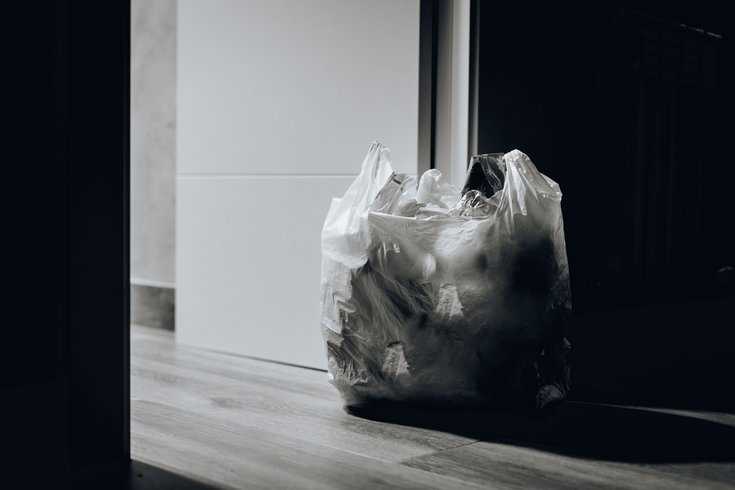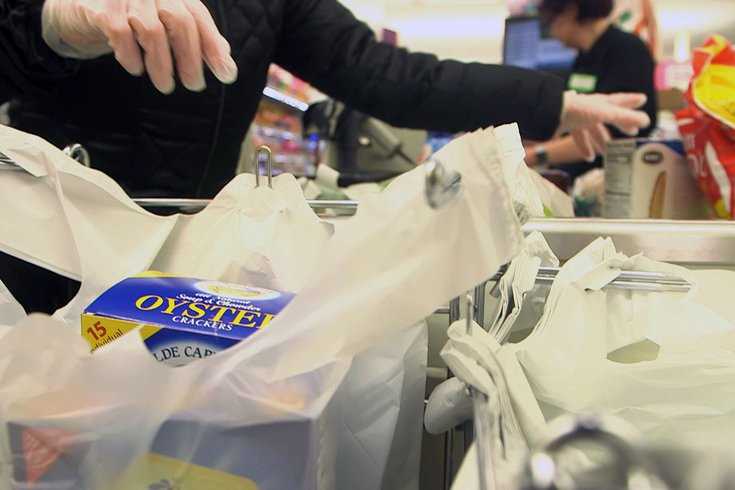Philadelphia, the bustling city known for its rich history and vibrant culture, is considering a ban on single-use bags. This move comes as part of the city’s ongoing efforts to reduce plastic waste and promote sustainable practices.
Single-use bags, commonly used in grocery stores and retail establishments, have long been a major contributor to pollution and environmental degradation. These lightweight bags are often discarded after a single use, ending up in landfills or littering the streets and waterways.
The proposed ban aims to encourage residents and businesses to shift towards more eco-friendly alternatives, such as reusable bags or biodegradable options. By reducing the use of single-use bags, Philadelphia hopes to alleviate the strain on its waste management system and protect its natural resources.
If implemented, the ban would join a growing number of cities across the United States that have taken similar steps to combat plastic pollution. From Seattle to Los Angeles, major metropolitan areas have recognized the need for change and embraced sustainable alternatives.
While some may argue that the ban could inconvenience consumers or impact businesses, advocates emphasize the long-term benefits of such a policy. By encouraging a shift towards reusable bags, Philadelphia can foster a culture of sustainability and inspire other cities to follow suit.
- Philly Single-Use Bag Ban: What You Need to Know
- Understanding the New Regulations
- The Impact on Businesses
- However, it’s important to note that the ban could also present opportunities for businesses to differentiate themselves in the market.
- Alternatives to Single-Use Bags
- Question-answer:
- Why is Philly considering banning single-use bags?
- What types of bags will be banned if the proposal goes through?
- Are there any exceptions to the proposed ban?
- What are the potential benefits of banning single-use bags?
- What are the potential drawbacks of banning single-use bags?
- Why is Philly banning single-use bags?
Philly Single-Use Bag Ban: What You Need to Know
Philadelphia is taking a big step towards reducing plastic waste with its upcoming single-use bag ban. Starting on July 1, 2022, the city will prohibit retailers from providing customers with single-use plastic bags at checkout. This ban is part of the city’s ongoing efforts to become more sustainable and reduce its environmental impact.
What is the purpose of the bag ban?
The single-use bag ban aims to reduce plastic pollution and promote the use of more eco-friendly alternatives. By eliminating single-use plastic bags, the city hopes to encourage residents and businesses to adopt reusable bags or other sustainable options.
What types of bags are included in the ban?
The ban covers single-use plastic bags that are less than 2.25 mils thick, commonly used at grocery stores, convenience stores, and retail establishments. It does not apply to bags used for certain items, such as loose produce, meat, or bulk items.
What are the alternatives to single-use plastic bags?
There are several alternatives to single-use plastic bags that residents and businesses can utilize. Reusable bags made from materials such as cloth, canvas, or recycled plastics are a popular choice. Paper bags are also allowed under the ban, but many individuals prefer reusable bags because they are sturdier and more sustainable in the long run.
Are there any exemptions to the bag ban?
Yes, there are exemptions to the bag ban. Small businesses with fewer than 50 employees and non-profit charitable organizations are exempt from the ban until January 1, 2023. Additionally, plastic bags used for certain purposes, such as packaging fresh fish or preventing contamination of prescription drugs, are also exempt.
What are the penalties for non-compliance?
For the first violation of the bag ban, retailers may receive a warning. Subsequent violations can result in fines ranging from $75 to $300 per violation. The city will primarily focus on educating businesses and customers about the ban’s requirements before enforcing penalties.
How can I get involved?
If you want to support the bag ban and help reduce plastic waste in Philadelphia, start by using reusable bags whenever possible. Encourage others to do the same and spread awareness about the negative impacts of single-use plastic bags. Together, we can make a difference for our city and the environment.
Understanding the New Regulations

The new regulations regarding single-use bags in Philadelphia aim to reduce plastic waste and promote a more sustainable environment. Under the new rules, retailers are prohibited from providing customers with plastic bags at checkout. Instead, customers are encouraged to bring their own reusable bags or purchase paper bags for a fee. This fee not only encourages the use of reusable bags but also helps offset the cost of implementing the new regulations.
Benefits of the New Regulations
By banning single-use plastic bags, Philadelphia hopes to significantly decrease the amount of plastic waste generated by the city. Plastic bags are a major contributor to pollution, as they are often not properly disposed of and can end up in waterways and natural habitats, causing harm to wildlife. Additionally, these bags take a long time to decompose, further exacerbating the environmental impact.
Adapting to the Regulations
While the new regulations may pose challenges for some businesses and individuals, it is essential to understand the importance of making this change. Retailers may need to invest in alternative packaging options, such as paper bags or reusable bags, to comply with the regulations. Individuals can contribute by incorporating reusable bags into their daily routines and raising awareness about the harmful effects of single-use plastics.
Looking Towards a Greener Future
Philadelphia’s ban on single-use bags is a significant step towards creating a more sustainable city. By reducing plastic waste, the city can protect its natural resources, mitigate pollution, and create a healthier environment for its residents. With the support of businesses and individuals, these new regulations have the potential to make a lasting positive impact on the community and inspire other cities to take similar actions.
The Impact on Businesses
The implementation of a single-use bag ban in Philadelphia would undoubtedly have a significant impact on businesses throughout the city. While the ban is intended to reduce plastic waste and promote sustainability, it could create challenges for retailers and other establishments.
One potential challenge that businesses may face is the need to find alternative packaging options for their products. Single-use bags are often used by retailers to provide customers with a convenient way to carry their purchases. Without these bags, businesses may need to invest in reusable bags or other packaging materials, which could increase their operating costs.
Additionally, the ban may require businesses to adjust their operations and workflows. For instance, employees may need to be trained on the proper handling and usage of reusable bags. This could potentially result in additional training costs and time spent on implementing these changes.
However, it’s important to note that the ban could also present opportunities for businesses to differentiate themselves in the market.
Businesses that take proactive steps to reduce their environmental impact and promote sustainable practices may attract environmentally conscious customers. This could lead to increased customer loyalty and support.
Furthermore, the ban on single-use bags may encourage businesses to explore alternative packaging and distribution methods. This could spark innovation in the industry and create new business opportunities.
Overall, while the ban on single-use bags may pose challenges to businesses, it also has the potential to drive positive change and provide new opportunities. It will be crucial for businesses to adapt and find ways to minimize the impact on their operations while also capitalizing on the advantages that the ban presents.
Alternatives to Single-Use Bags

As Philadelphia considers banning single-use bags, it’s important to explore alternative options that are more sustainable and eco-friendly. Here are a few alternatives worth considering:
1. Reusable Bags: One of the most popular and effective alternatives to single-use bags are reusable bags. These bags are usually made from durable materials like canvas or recycled plastic and can be used over and over again. They are available in various sizes and designs, making them a versatile option for carrying groceries, clothing, or any other items.
2. Paper Bags: Although paper bags are not as durable as their plastic counterparts, they are biodegradable and can be easily recycled. Many stores offer paper bags as an option for customers who prefer eco-friendly alternatives. Keep in mind that paper bags might not be as strong, so it’s important to handle them with care, especially when carrying heavy items.
3. Biodegradable or Compostable Bags: Another alternative to consider is biodegradable or compostable bags. These bags are specifically designed to break down naturally over time, reducing their environmental impact. They are usually made from plant-based materials like cornstarch and can be easily composted in designated facilities.
4. Bring Your Own Container: In addition to using reusable bags, another eco-friendly option is to bring your own containers when shopping for bulk items or deli products. By using your own containers, you can eliminate the need for plastic bags altogether. Just make sure to weigh and label your containers before filling them up.
5. Encourage a Culture of Reuse: Ultimately, one of the most effective ways to reduce the use of single-use bags is by encouraging a culture of reuse. Encourage others to bring their own bags, containers, and bottles. Lead by example and make sustainable choices in your everyday life.
By exploring and embracing these alternatives, we can all contribute to a cleaner and more sustainable environment. Let’s make the switch to more eco-friendly options and say goodbye to single-use bags for good!
Question-answer:
Why is Philly considering banning single-use bags?
Philly is considering banning single-use bags to reduce waste and promote sustainability. Single-use bags are a major source of litter and environmental pollution.
What types of bags will be banned if the proposal goes through?
If the proposal goes through, it will ban single-use plastic bags and non-recyclable paper bags. Retailers would be required to replace them with reusable or compostable bags.
Are there any exceptions to the proposed ban?
Yes, there are some exceptions to the proposed ban. Small businesses with less than 15,000 square feet of retail space would be exempted for one year, and plastic bags used for packaging bulk items or perishable goods would still be allowed.
What are the potential benefits of banning single-use bags?
Banning single-use bags can have several benefits. It can reduce litter and marine pollution, conserve resources, and encourage the use of reusable bags, which are more environmentally friendly. It can also save retailers money, as they would no longer need to provide single-use bags.
What are the potential drawbacks of banning single-use bags?
There are potential drawbacks to banning single-use bags. Some argue that it may inconvenience consumers who rely on single-use bags for various purposes. Additionally, there may be an initial cost for retailers to provide reusable or compostable bags to their customers.
Why is Philly banning single-use bags?
Philly is banning single-use bags to reduce plastic waste and protect the environment. Single-use bags are a major source of pollution and take hundreds of years to decompose.